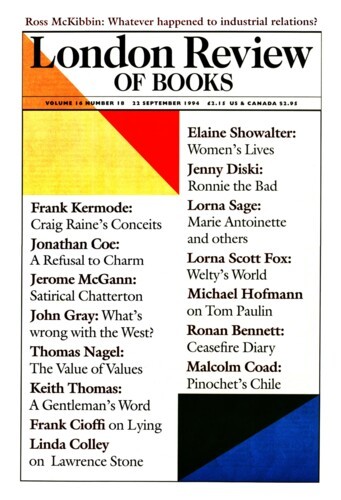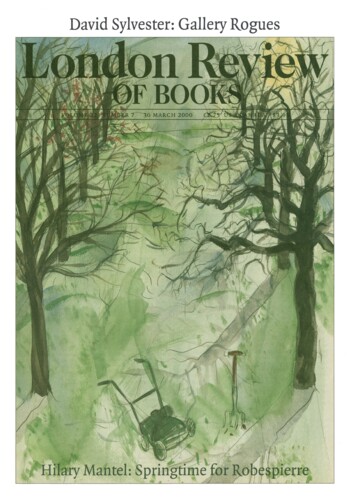Infatuated Worlds
Jerome McGann, 22 September 1994
The legend named Thomas Chatterton is less marvellous than the boy it glorified, and far less rich or strange than the cultural history that includes the history of the legend itself. Chatterton committed suicide in August 1770. He was not yet 18 years old. With little formal education – seven years in a provincial school, followed by less than three years as a lawyer’s apprentice – he left his native Bristol to make his way as a writer in London, where he died only four months later. For at least three and possibly even six years before leaving Bristol, Chatterton was constructing the Rowley materials – creating what purported to be 15th-century vellum documents, and writing out texts that he represented as copies made from 15th-century documents. According to Chatterton, the originals came from a chest found in St Mary Redcliff.’


